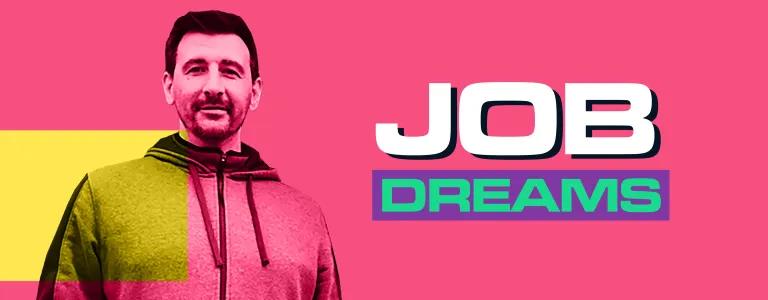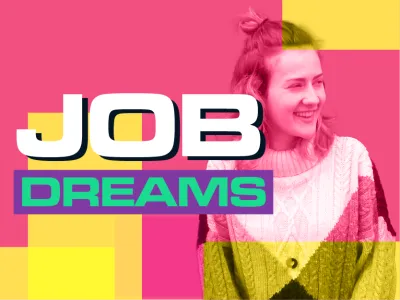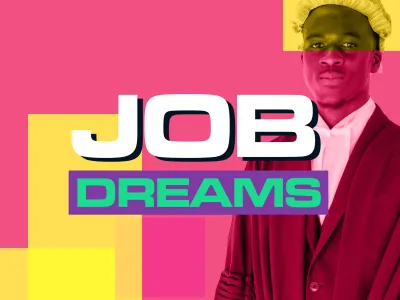
Job Dreams: Divisional Policy Lead
As part of our Job Dreams series, we speak to professionals from different careers and share their advice with you. Last month, we learned what it's like to be an NCS Team Leader. This month, we met Stan, who told us all about what it’s like to be a Divisional Policy Lead!

What do you do?
My role is varied, however, in a nutshell I work within the banking industry in the anti-money laundering division, and my job is to protect the bank from criminal activities. This can range from counterfeit money, terrorist financing, money laundering (turning dirty money into clean money), sanctions, anti bribery and corruption.
What do you love most about your job?
I never wanted to work in an office, it seemed so boring, however, working within this industry can be very interesting and often offers some excitement as no two days are the same. There is a real buzz when you can be part of something that stops criminals/terrorists and I have felt real pride when I have been able to identify and stop this from impacting the businesses I have worked in.
What do you find most challenging?
Poor business behaviours. Unfortunately there are too many people who believe talking louder than everyone else or talking over everyone else means their ideas are better than everyone else’s ideas, and this is seldom the case. As people enter the working environment for the first time, this is one of the first poor behaviours they will come across. Thankfully as we see more businesses embracing wellbeing in the workplace we should see this slowly disappear.

What did you see yourself doing when you were a kid?
I never really had any goals/career aspirations, I just wanted to make my mum proud…which was difficult to do because I wasn’t very academic and was happy to be the class clown. However when I actually did realise I needed to think about a job I thought I’d be a firefighter. I was tall…surely that was all I needed?
After realising you needed a little more than being tall to be a firefighter I went to college and enrolled in forensic science. This was in 1996, so a long time before CSI became so attractive, but it wasn’t the normal 9-5 and that appealed to me, it was something that would be exciting and different day to day.
How did you get into the job you are doing now?
I’ve been working in banking since 1997, and it wasn’t a clear cut career path. After realising that forensic science wasn’t actually as fun as it sounded I left college and worked at a supermarket full time. This would have been my job for the rest of my life, it was close to my house, I got a 10% discount on food and the salary was enough to get some decent clothes and pay for a few nights out – living the dream!
Unfortunately after a few months they decided I wasn’t needed full time and my hours reduced significantly, so for about a week I was chilling at home with my mum who then told me “you need to get a job or move out!”.
A day later I got a train to Shepherd’s Bush (not sure why) with 100+ CV’s and cover letters and walked back to Peckham handing them into any office I walked past. Ironically the only job I was interviewed for was from the first place I handed my CV into.
I started working in the post room of a bank. It was a good job with all the benefits it gave to the staff, but I knew I wanted more. So wherever possible I would take on additional work, volunteer to help anyone who needed it, and work weekends, and as a result I was offered an entry level role in the actual bank.
From there, with the same determination, I was able to move into more exciting roles and gradually progressed through the corporate titles all connected to the financial crime industry.
What challenges did you face in reaching where you are today?
This is where I will make you feel sorry for me, there have been a fair few challenges but the most significant ones being:
I didn’t have a degree, I didn’t even have good GCSEs – I was not someone who was going to get a good job, I definitely wasn’t going to have a career. Unfortunately this was often the message I received, which is soul destroying and while it wasn’t a talked about thing back then, this really impacted my mental health.
I was told I didn’t speak well enough, that my accent (I am from Peckham so that was nuts) wouldn’t be received well by clients, and senior managers would not be comfortable with me talking to clients or attending client events. This often put me behind less experienced peers for promotions and I missed out on some really great opportunities.
I had a child fairly young and had to juggle work with childcare, which is not the easiest thing to do when you are trying to work as hard and as long as you can to get recognised, but have to leave important meetings early to collect your child from the childminder/school.
But challenges are there to be overcome, and with great managers and more importantly amazing mentors, my belief has always been that with drive and hunger people can achieve their goals, even if the path isn’t always as smooth as it should be.
These challenges have also helped me to become a better manager. Without these experiences myself, I would not have the tools available to support people who have worked for me, or the individuals I have been lucky enough to mentor over the years.
If you weren’t working in this field, what do you think you’d be?
Trying to earn extra money I performed stand-up comedy on and off over the years. I was actually fairly good, so I would hope I would fall back into this and be hugely successful, however, in reality more than likely I would be working in a role which helps to develop young talent and allows them to reach their full potential.
Where do you see yourself going next?
I have only really had one job in banking and that’s within financial crime, however this is such a complex and diverse business, and there are multiple functions within this field, so I don’t see myself making any significant changes. I do believe as an industry we are heavily reliant on systems and technology, so we need to ensure we continue to invest in young people/talent and develop them to ensure we have succession planning in place. I would like to be part of that.

What do you know now that you wish you’d known when you first left school?
Do not take criticism too hard. Every failure/mistake is an opportunity to learn. I used to beat myself up all the time when something went wrong and that would negatively impact me for days. It really isn’t worth it and doesn’t have any benefits for anyone.
What advice would you give to someone interested in joining your industry?
Do not be afraid to start at the bottom. Everyone is looking for a high paying, high flying role, but there is a risk of being promoted to failure. Experience holds much more weight than a flashy title, so learn as much as possible and then your value will be recognised.
I started my banking career in the post room. I was hungry for success so volunteered for extra responsibilities/work/hours. These are not always rewarded financially, but, you will be noticed and your efforts will not go unrewarded in the long term.
What’s the best piece of professional advice you’ve been given?
See an opportunity and take it. Never underestimate your abilities to succeed because other people do that. Feel the fear and do it anyway!
What quote do you live by?
We fail together, we learn together, we then succeed together – Stan Moore
Don’t let yesterday use up too much of today – Will Rogers




